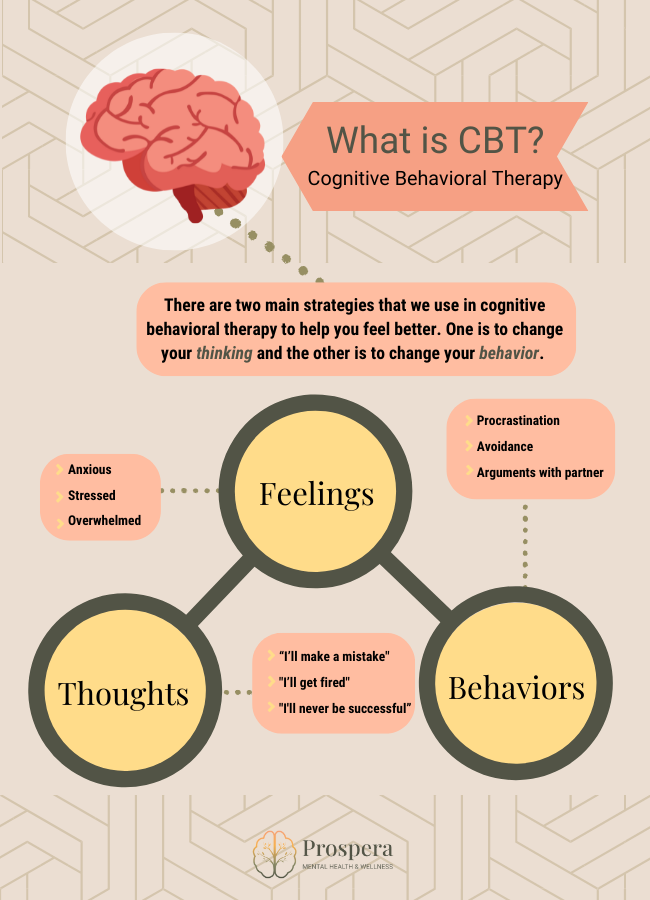Cognitive Behavioral Therapy (CBT)

Cognitive Behavioral Therapy (CBT): Overview and Principles
Cognitive Behavioral Therapy (CBT) is a structured, goal-oriented form of psychotherapy that helps individuals identify and modify negative thought patterns and behaviors to improve emotional regulation and develop effective coping strategies. Developed in the 1960s by Dr. Aaron Beck, CBT has become one of the most widely researched and effective psychological treatments for a range of mental health conditions, including depression, anxiety disorders, substance use disorders, eating disorders, and severe mental illness136.
Core Principles of CBT
CBT is grounded in several key principles:
- Cognitive Model: Psychological problems are partly based on faulty or unhelpful ways of thinking, and learned patterns of unhelpful behavior. Changing these patterns can relieve symptoms and improve functioning18.
- Present-Focused: CBT emphasizes current problems and practical solutions, rather than focusing extensively on past experiences28.
- Collaboration: Therapy is a collaborative process between therapist and client, with active participation and cooperation28.
- Problem- and Goal-Oriented: CBT is structured around specific goals and problem-solving strategies28.
- Educational and Time-Limited: CBT aims to educate clients to become their own therapists, often within a set number of sessions28.
- Relapse Prevention: Clients learn skills to prevent relapse and manage future challenges independently2.
CBT Techniques
CBT employs a variety of techniques to change thinking and behavior, including:
- Cognitive Restructuring: Identifying and challenging negative or distorted thoughts (cognitive distortions) and replacing them with more realistic, balanced thinking48.
- Behavioral Activation: Encouraging engagement in positive or meaningful activities to counteract avoidance and inactivity4.
- Exposure Therapy: Gradually facing feared situations or stimuli to reduce anxiety and avoidance behaviors4.
- Problem-Solving Skills: Developing effective strategies to cope with difficult situations1.
- Role Playing: Practicing social or challenging scenarios to build confidence and skills1.
- Relaxation Techniques: Learning methods to calm the mind and body, such as deep breathing or mindfulness14.
- Homework Assignments: Practicing skills and techniques outside of therapy sessions to reinforce learning and promote independence18.
Structure of CBT
- Individualized Formulation: Each client’s treatment is tailored based on their unique cognitive conceptualization and ongoing assessment28.
- Session Structure: Sessions typically follow a set format, including agenda setting, review of homework, discussion of new material, and planning for the week ahead28.
- Therapeutic Alliance: A strong, collaborative relationship between therapist and client is essential for effective CBT28.
Effectiveness and Benefits
Numerous studies demonstrate that CBT leads to significant improvements in functioning and quality of life, and is often as effective as, or more effective than, other forms of therapy or psychiatric medications for many conditions136. Benefits include:
- Reduced anxiety and depression
- Improved mood and coping skills
- Enhanced problem-solving abilities
- Increased self-confidence and independence3
Summary Table
| Aspect | Details |
|---|---|
| Focus | Changing negative thoughts and behaviors |
| Structure | Time-limited, structured, present-focused |
| Key Techniques | Cognitive restructuring, behavioral activation, exposure, relaxation, homework |
| Therapist Role | Collaborative, educational, supportive |
| Effectiveness | Strong evidence base for a wide range of mental health conditions |
Consult with Our Team of Experts Now!
At DrStemCellsThailand (DRSCT)‘s Anti-Aging and Regenerative Medicine Center of Thailand, we emphasize comprehensive evaluations and personalized treatment plans of Cellular Therapy and Stem Cells for managing various health conditions. If you have questions about Cognitive Behavioral Therapy (CBT) or would like more information on our services, consult with our experts today!
Consult with Our Team of Experts Now!
References1 American Psychological Association: What is Cognitive Behavioral Therapy?2 Diamond Rehab Thailand: 10 Principles of Cognitive Behavioral Therapy3 Great Lakes Psychology Group: 5 Benefits of Cognitive Behavioral Therapy4 Therapy Group DC: Top Techniques of Cognitive Behavior Therapy5 NHS: Overview – Cognitive Behavioural Therapy (CBT)6 Mayo Clinic: Cognitive Behavioral Therapy7 NHS: Cognitive Behavioural Therapy (CBT)8 Beck Institute: Understanding CBT
Cognitive Behavioral Therapy is a highly effective, evidence-based approach that empowers individuals to manage and overcome psychological difficulties by changing the way they think and behave.















